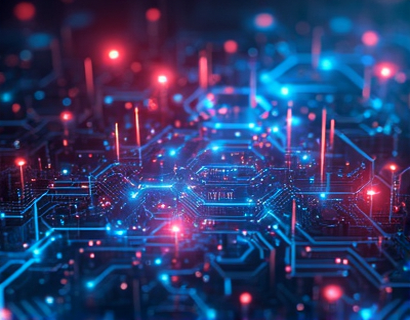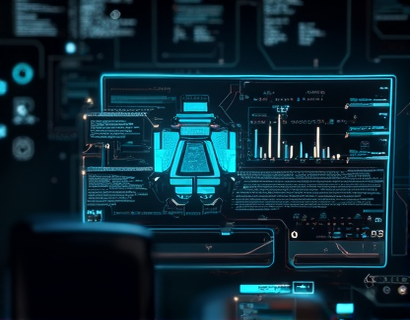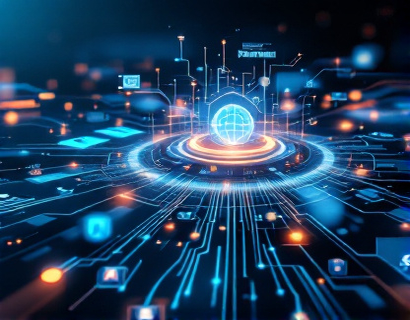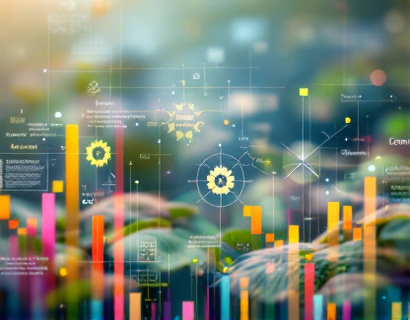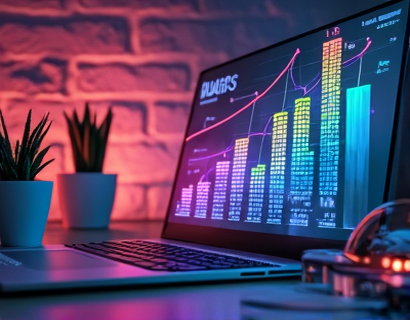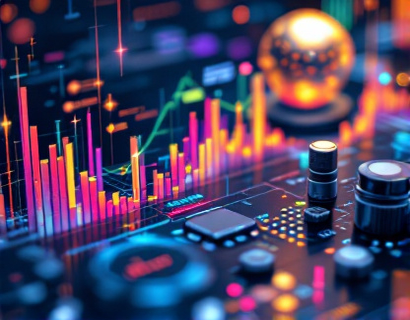Unlocking Next-Gen Productivity: Leveraging AI and Crypto for Innovative App Solutions
The intersection of artificial intelligence (AI) and cryptocurrency is giving rise to a new era of productivity tools and applications. This fusion is not just about combining two cutting-edge technologies but about creating a synergy that redefines how we approach work, streamline tasks, and enhance our daily lives. For tech-savvy innovators and early adopters, this convergence opens up a world of possibilities, offering solutions that are smarter, more secure, and highly efficient. This article delves into how AI and cryptocurrency are being leveraged to develop innovative app solutions that are set to transform the way we work and interact with technology.
Understanding the Synergy Between AI and Cryptocurrency
AI and cryptocurrency may seem like disparate entities at first glance, but they share a common foundation in decentralization and data-driven decision-making. AI thrives on data, requiring vast amounts of information to learn, adapt, and improve. Cryptocurrency, particularly those built on blockchain technology, provides a decentralized and secure way to store, transfer, and manage data. When combined, these technologies can create applications that are not only highly efficient but also resistant to censorship and tampering.
The decentralized nature of cryptocurrency ensures that data is not controlled by a single entity, reducing the risk of data breaches and enhancing user privacy. AI, on the other hand, can process and analyze this data to provide insights, automate tasks, and personalize user experiences. This synergy is particularly powerful in the development of apps that require high levels of security, transparency, and intelligence.
Enhancing Security with Blockchain and AI
One of the most significant benefits of merging AI and cryptocurrency is the enhanced security these applications can offer. Blockchain technology provides a tamper-proof ledger, ensuring that transactions and data are immutable. AI can further bolster this security by detecting and mitigating potential threats in real-time. For instance, machine learning algorithms can analyze patterns in blockchain data to identify anomalies that might indicate a security breach. This proactive approach to security is crucial for applications handling sensitive information, such as financial transactions, health records, and personal data.
Moreover, AI can be used to create more robust authentication mechanisms. Biometric data, such as facial recognition and fingerprint scans, can be integrated with blockchain to provide secure and seamless user verification. This combination not only enhances security but also improves the user experience by eliminating the need for passwords and other cumbersome authentication methods.
Optimizing Workflows with AI-Powered Automation
AI-driven automation is revolutionizing the way we handle repetitive and time-consuming tasks. In the context of cryptocurrency and blockchain applications, AI can optimize workflows by automating complex processes such as smart contract execution, transaction validation, and data analysis. Smart contracts, self-executing contracts with the terms directly written into code, can be enhanced with AI to adapt to changing conditions and execute more complex logic. This results in more efficient and reliable automated processes.
For example, in the realm of supply chain management, AI can analyze blockchain data to predict delays, optimize routes, and ensure compliance with regulations. This not only streamlines operations but also reduces costs and improves overall efficiency. Similarly, in the financial sector, AI can automate the process of monitoring and managing cryptocurrency portfolios, providing real-time insights and recommendations to users.
Personalization and User Experience
AI's ability to learn from user behavior and preferences makes it an ideal partner for creating personalized applications. In the context of cryptocurrency and blockchain, this means developing apps that adapt to individual user needs, providing tailored recommendations and services. For instance, a cryptocurrency portfolio manager powered by AI can analyze market trends, user risk tolerance, and investment goals to suggest optimal trading strategies. This level of personalization not only enhances the user experience but also increases the effectiveness of the application.
Moreover, AI can be used to create intuitive user interfaces that simplify complex blockchain and cryptocurrency concepts. By understanding user interactions and feedback, AI can continuously improve the app's usability, making it more accessible to a broader audience. This is particularly important for early adopters who may be less familiar with the technical aspects of these technologies.
Decentralized Applications (DApps) and AI Integration
Decentralized Applications (DApps) are a natural fit for the AI-cryptocurrency synergy. DApps leverage blockchain's decentralized architecture to provide applications that are transparent, secure, and resistant to censorship. When AI is integrated into DApps, the potential for innovation increases exponentially. For example, a decentralized gaming platform can use AI to create dynamic and adaptive game environments, ensuring a unique experience for each player. The AI can analyze player behavior to generate challenging levels, NPC (non-player character) actions, and even create procedurally generated content.
Another exciting application is in the field of decentralized finance (DeFi). AI-powered DeFi platforms can offer more sophisticated lending, borrowing, and trading services. By analyzing market data and user behavior, AI can provide predictive analytics and automated trading bots that execute trades based on predefined strategies. This not only democratizes access to financial services but also enhances the efficiency and profitability of these services.
Data Analytics and Insights
One of the most powerful aspects of combining AI and cryptocurrency is the ability to perform advanced data analytics. Blockchain provides a rich source of data, and AI can process this data to uncover valuable insights. For instance, in the cryptocurrency market, AI can analyze transaction data, social media sentiment, and news articles to predict price movements and identify emerging trends. This information can be invaluable for traders and investors looking to make informed decisions.
Additionally, AI can help in optimizing resource usage and reducing waste in blockchain networks. By analyzing network data, AI can identify bottlenecks and suggest improvements to enhance the overall performance and scalability of the blockchain. This is particularly important for public blockchains that need to handle a large volume of transactions efficiently.
Case Studies and Real-World Applications
Several projects and platforms are already leveraging the combination of AI and cryptocurrency to create innovative solutions. One notable example is a decentralized identity management system that uses AI to verify and manage user identities on the blockchain. This system not only enhances security but also gives users control over their personal data, allowing them to share it selectively with applications and services.
Another example is an AI-powered cryptocurrency trading platform that uses machine learning algorithms to analyze market data and provide real-time trading recommendations. This platform can adapt to changing market conditions, helping users maximize their returns while minimizing risks. The integration of AI ensures that the platform remains competitive and effective, even in highly volatile markets.
Challenges and Considerations
While the potential of AI and cryptocurrency in creating innovative app solutions is vast, there are several challenges and considerations to keep in mind. One of the primary challenges is the technical complexity involved in integrating these technologies. Developers need a deep understanding of both AI and blockchain to create robust and secure applications. This requires a skilled workforce and significant investment in research and development.
Another consideration is the regulatory landscape. The intersection of AI and cryptocurrency is a relatively new area, and regulations are still evolving. Developers must navigate varying legal frameworks and ensure compliance to avoid legal issues. Transparency and ethical use of AI are also crucial to gain user trust and acceptance.
Future Prospects
The future of AI and cryptocurrency in app development is bright, with numerous opportunities for innovation and growth. As more developers and businesses recognize the potential of this synergy, we can expect to see a surge in new applications that push the boundaries of what is possible. From smart cities leveraging AI and blockchain for efficient resource management to healthcare applications that use AI to analyze medical data on the blockchain for better patient outcomes, the possibilities are endless.
The key to success in this space will be continuous learning, collaboration, and a willingness to embrace new technologies. By staying at the forefront of AI and cryptocurrency developments, tech-savvy innovators and early adopters can lead the charge in creating a more productive, secure, and efficient digital world.




